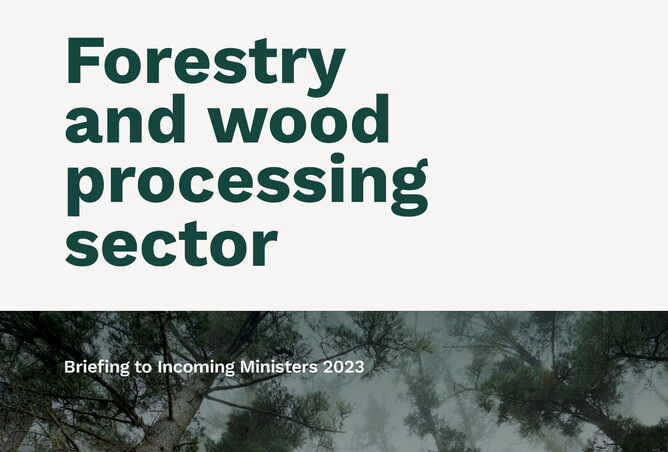There are many reasons why the government should be a strong supporter of the forest and wood processing sector. Such support will generate huge benefits for Aotearoa New Zealand.
The forestry and wood processing sector’s Briefing to Incoming Ministers (BIM) is calling for a strategic approach that acknowledges the significance of the forestry sector’s contribution to the economy, and the environment, including climate change mitigation, water quality improvement and biodiversity co-benefits.
Forestry occupies a comparatively modest 1.8 million hectares of land but delivers more per hectare than most other rural activities. The potential to do more from a relatively small expansion is significant. In 2023, the forest sector was worth $6.69 billion in export value. The Ministry for Primary Industries (MPI) highlights the potential to increase forest product export values to $8 billion by 20303.
Each year the production forest estate in Aotearoa New Zealand sequesters more than half of Aotearoa New Zealand’s total carbon emissions. But forestry’s contribution to climate change mitigation extends beyond just the absorption of carbon dioxide by trees. Wood products make a vital contribution, generating jobs and regional revenue streams, and wood is core to developing a bio-based circular economy.
The potential for medium to high rise construction from wood, as opposed to carbon-intensive concrete and steel, has yet to be recognised in Aotearoa New Zealand.
France’s new RE2020 regulation favours low carbon materials such as wood in construction – owing to its low emissions during manufacture and its ability to store carbon. Sweden has also mandated the consideration of embodied carbon in construction materials. In the United States, the Bipartisan Infrastructure Law includes up to $12 million USD (approx. $20.7m NZD) for each of five years to expand the use of wood products.
Our government should recognise, reward and lead by example with construction from wood.
For the sector to realise its potential, policy settings need to be well thought out and provide certainty and equity.
The forestry and wood processing sector – and Aotearoa New Zealand’s wider primary industries – has been overwhelmed by regulation change of late. Regulation changes, which seek to constrain afforestation and transfer decisions away from landowners to local government, undermine investor confidence.
As the forestry sector, our aim is to grow a sustainable economy, support communities with jobs and opportunity, to be an exemplar in innovation and heed the call for climate action by creating climate resilient landscapes that empower a circular bioeconomy, and produce high value wood fibre products and services allowing Aotearoa New Zealand to transition to a low carbon, high-value future.




